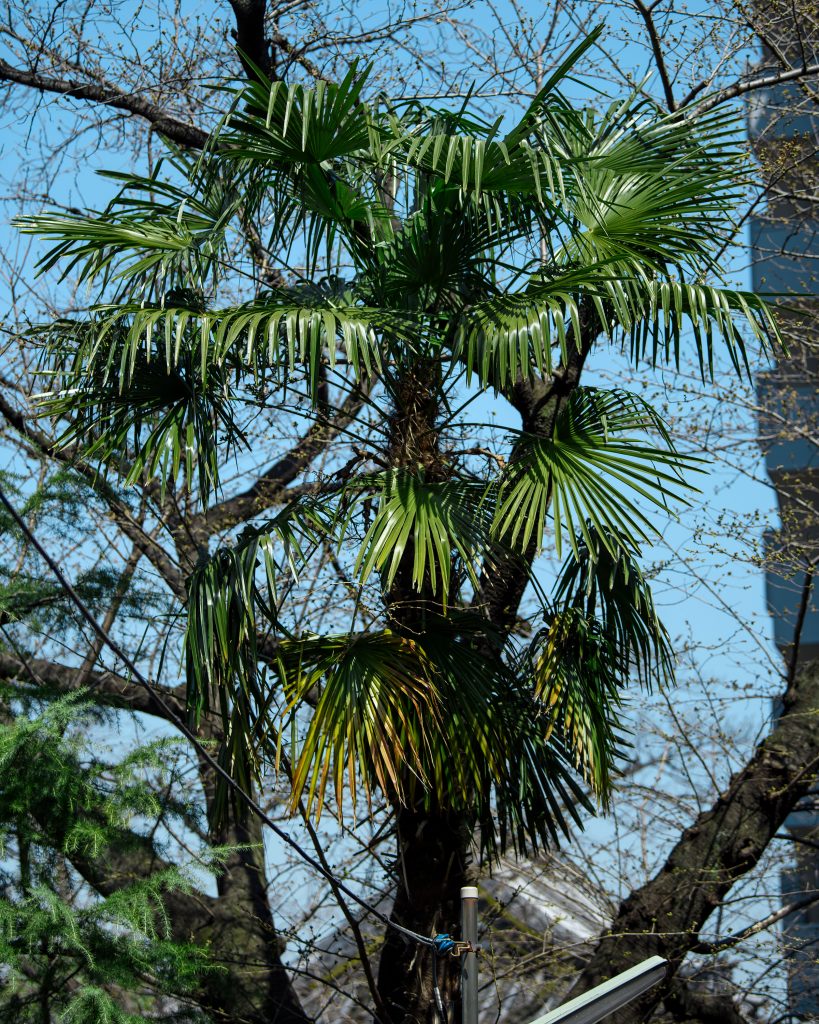The magic is broken.
What you see will disappear.
But in truth, nothing is lost.
*
It would be nice to have a book that I can read while walking.
It would be nice if there were books that you could write while walking.
In fact, even though walking is reading, and walking is writing, it is at the same time not the case. It’s a strange thing. When I am walking, there are always new books being read and new books being written in my head.
I like to walk. I’m always walking. I think I like to walk because I like to read books. Reading the world is an overused cliché, but when I walk, I inevitably get information other than my own thoughts, so I can only say that I am reading something. Just as reading a book may or may not have a destination, walking may or may not have a destination. Just as you can read the same book with someone else or alone, you can walk with someone else or walk alone. Either way, the scenery flows as you walk. From front to back, what I see crosses past me. My thoughts go through a transition. I think it’s interesting that after the words are released, it seems as if the thought that the words are leading to has been there from the beginning, even before the words were born, even though I was not thinking such a thing from the beginning. The thoughts that the words bring together seem to have been there from the very beginning, even before the words were born, and that they seem to continue to be there without changing.
I think that walking, reading, thinking, and writing are very similar. I think I deeply love the feeling of a landscape entering my vision and thoughts rising from that landscape.
I’m writing this while walking.
Of course, that’s not really true.
I can’t write while walking.
I can’t write without stopping.
That’s the problem.
When I write that I write about walking, I am, in fact, writing about having walked.
That kind of lie follows me when I write. All the time. Already. Equally in every sentence.
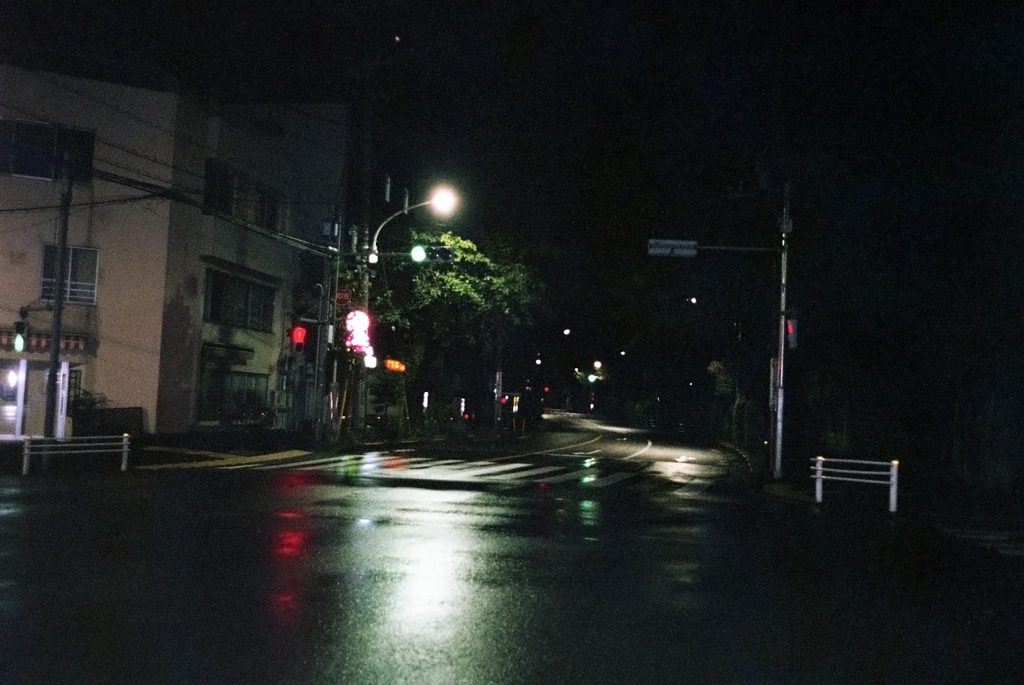
The other day, one of my classmates from my university days came to Nagoya for work. He had been working for a newspaper company after graduating from university, and had moved from place to place after leaving Tokyo. He told me that he was now in Osaka and visiting Nagoya for the weekend. He had some job to do on Sunday. It was Saturday night, around 9:00 p.m., when he called. I had already done most of what I wanted to do for the day. I had already cooked dinner, finished eating, and put the dishes in the dishwasher. All that was left was to bathe the kids, put them to bed, and call it a day. Then I was thinking about how to spend my evening. I sipped some tea and picked up my phone. There was a call from an unknown number. It was a cell phone number starting with 080 (note: a common Japanese mobile phone number), so I figured it was probably someone I knew, and called back. I’ve started to write about each of these little details without really thinking about it, but it’s become a bit too tedious and there is nothing interesting in them, so I’ll skip them from here. I asked my wife to bathe the kids and put them to bed, and I left the house. My classmate was in the Nishiki area. I took the train from Kamejima to Sakae and from there walked to Nishiki.
About 10 minutes after leaving home, I met my classmate in the lobby of a hotel in Nishiki. We didn’t really meet right away, but I don’t remember the details, so I’ll leave it at that. When I arrived at the hotel, I sat down on the sofa in the lobby and then went into the bathroom because I had a stomach ache. I was sitting on the toilet seat looking at Twitter when the phone rang. Then I left the bathroom. Only a little stool came out. My stomach still hurt.
When I went out to the lobby, I found him sitting on the sofa. Or maybe he was standing. Either way, there he was. He was wearing a mask, but I recognized him immediately. I was also wearing a mask, but he seemed to recognize me too. It seems both natural and amazing. Over the past year or so, we have developed the ability to identify people by the upper half of their faces. We recognized each other, waved at each other, and casually said “hey” like college kids. We laughed vaguely, fidgeted, and exchanged one or two random words. Then we started walking. We didn’t know where we were going. Of course, he didn’t know anything about the city of Nagoya, and I barely knew much more. I knew where the views were, but I didn’t have any concrete understanding of that being at this or that building or any names. I’m that kind of person. I can’t connect senses with symbols. We had no plan. At any rate, we left the hotel. We went outside and looked around for a while. It didn’t occur to us to go into any stores. Nishiki was so crowded that it was kind of scary. We left Nishiki and went to the main street. We walked along the main street for some reason. We wandered around randomly and decided to go into some nice stores along the way. We started walking through the streets of Nagoya. We walked through the downtown area. We walked under the ferris wheel. Every izakaya was packed. We didn’t have the courage to go in (we didn’t say it outright, but we were both afraid of Covid-19. We were avoiding the crowds. An unspoken assumption). We wandered aimlessly toward Yabacho and entered the Lawson at the end of the crosswalk. Although we hadn’t decided to do so, we bought some beer there and toasted under the elevated railway tracks. We started wandering around again, drinking the canned beer, and when we had finished it, we went to a nearby convenience store to buy a new beer. We repeated the process. A pile of crushed cans formed on the concrete under the elevated tracks. I smoked like an idiot for the first time in a long time. I don’t remember the taste. I had lost all sense of taste.
By the time we got back to Nishiki and arrived at a park, we were completely drunk. Even though it was late at night, the park in the downtown area was crowded with people. I think there was a basketball rim in the park, but it looked like something I had seen somewhere else. There were young people practicing riding skateboards, dancing, and singing music from speakers, but I’m not sure if such a space can be created in the downtown area late at night. At least, I have never seen such a scene except that night. If you asked me if I had seen such a scene in a movie or a film, my answer would be that I might have. I have a feeling that I’ve seen such a scene in some other place that’s not real, and I have a feeling that I had not seen it before that. We drank beer and talked until the night was long, but I can’t remember what we talked about. I just have the feeling that we talked about something. If you said it was all a dream, I would feel that way, and if you said it wasn’t, I could feel that way too. I have a desire to have such memories, and my mind works to create them, regardless of whether they are true or false.
I liked to walk. I liked the night.
I liked it. I liked to see young people playing basketball in the dark of the night, practicing skateboards, dancing, and singing with music blaring from speakers.
*
By the way, it is my philosophy that if you are writing something and you don’t want to write anymore, you should stop writing. But I don’t know if that’s a good idea. There are a lot of novels that have ended in the middle by doing so. I understand that it’s possible to write a masterpiece only by overcoming difficulties, and in fact, I think that is how many novels are written. I simply don’t want to do that. It tires me out.
*
Which is why that story ends here.
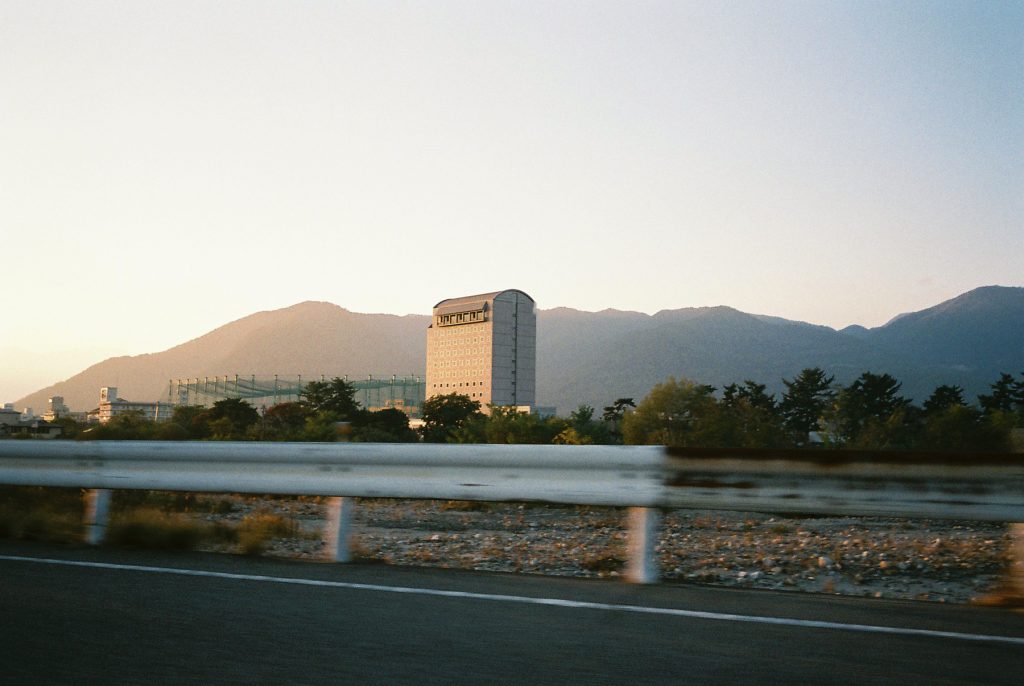
Moving on.
As the 21st century arrived, I was walking again. I was 11 years old at the time, and after eating New Year’s soba noodles at home, I went to a square run by the local government by myself. I didn’t have an appointment with anyone, but I had a feeling that I would meet someone there. That’s the way it is in the world of children. This is not the case in the adult world. Pork miso soup, udon noodles, and soba noodles were being served in the plaza. I think I ate something, but I can’t remember what it was. Maybe I’m just imagining it. In the crowd of flickering light bulbs, I found my friends. There were two of them. I won’t say their names. One was an orphan and the other was Korean. I talked to them about something, but I don’t remember what. I can’t remember any of the conversations we had in elementary school. The three of us talked about something and started walking towards somewhere. It was a small town. The whole town was engulfed in a festive atmosphere.
There was some kind of rock-paper-scissors tournament going on in the square. I took part in it. I was looking forward to it. When the tournament started, I immediately lost. I can’t remember how I felt at that time. The winner was given something by the head of the neighborhood association. I think it was a travel coupon or a gift certificate. I was looking at it from a distance. I don’t remember feeling particularly jealous. After that, the countdown began. A digital clock was projected on a screen on the stage at the back of the plaza. When the clock reached 23:59:00, the countdown began. Everyone in the town began to countdown. As we counted, the voices got louder. At midnight, a small firework went off, and all the people present jumped and cheered.
The square is no longer there. It’s become a parking lot. The people who gathered there are no longer there. When I went there as an adult, it seemed so small. It is hard to believe that people from all over the town used to gather there. Perhaps the memories are mixed up with some other memories.
After the countdown was over, the three of us headed for a shrine. I still don’t remember how we got to the shrine. It took about 20 minutes to walk from the square to the shrine. I don’t think there were any adults along the way. I don’t know what actually happened, but since that is what I remember, we probably walked the whole way with just the kids. When we arrived at the shrine, the adults had put newspaper, firewood, and garbage in drums and were making a bonfire. They were serving rice cakes and roasted sweet potatoes. We ate them as we warmed ourselves by the fire. A man in the neighborhood was handing out sweet sake, which we drank. We were supposed to go home from there. When I left home, I had told my parents that I would come back after I went to pay my first respects to the shrine.
We chose to walk along a path we had never taken before. Or rather, from the shrine onward, it was all roads we had never walked before. There was a game store called “Wanpaku Kozo” just beyond the elementary school, and then there was “Sati”. I had been to Sati by car or bicycle, following my mother when she went shopping. But I had never been there on foot. None of the three of us had ever walked to Sati before, and of course none of us knew what was beyond Sati. There were a lot of people at Sati during the day. I remember my mother buying me limited edition Gundam plastic models and Yu-Gi-Oh cards there. She told me not to tell my father. The person I was then is different from the person I am now. Now, I don’t buy Gundam plastic models, nor do I buy Yu-Gi-Oh cards. I didn’t read novels, watch movies, listen to music, or use the Internet. The person I was then and the person I am now are completely different. Yet, somehow, we share the same memories and are considered to be the same person. Inside me, there are people who are not me. We make up my history. It’s strange.
But I can also say this. I don’t know who I was when I was collecting Gundam plastic models. I don’t know who I was when I collected Yu-Gi-Oh cards. I don’t know the me who didn’t read novels. I will never know the me who never watched a movie, the me who never listened to music, the me who never touched the Internet. “We” are recursively created by the present me. Therefore, there is only the present me, and there is no past me.
It was midnight, and Sati was empty. We walked through the ropes and went inside. We wandered around the bicycle parking lot. Someone said, “This is pretty cool.” I thought so too. I didn’t do anything special except wander around, but at that time I had the feeling that I was doing something special. After wandering around for a while and eventually getting tired of it, we left Sati and walked onward.
We didn’t know what was beyond Sati. We kept walking without knowing anything. Maybe it was because we didn’t know anything that we were able to keep walking. Sometimes there were pornographic films and pornographic books on the edge of the road, and we would point at them and get excited. Whenever a truck or a police car passed by us, we laughed at their antics and let out strange screams of excitement. The road continued on and the sidewalks were covered with weeds in places. There was no one walking around. There was no one. No one but us. It was night. The road at night was a different world. We were walking in a different world. It was a kind of adventure.
Yeah.
I was walking around a lot of places.
Hashima.
Tokorozawa.
Takadanobaba.
Takarazuka.
Nagoya.
I don’t like to travel, but I do like to walk around. It may mean that I do like to travel, but it doesn’t mean that I do anything in particular. It doesn’t have to be a trip. I imagine myself living in a city that I have never lived in before. I walk, read books, take naps, and even write things. Is that traveling? I don’t know. I think I just like daily life.
*
Getting back on track.
When I got home, it was morning. Everyone in the family was awake. My mother was very angry with me. From that day on, there was a curfew in our house. At that time, none of the children had cell phones, so it was necessary to make rules in advance. After eating zoni (stewed rice with red beans), I took a bath that my mother had prepared for me, and went to sleep.
The 21st century had arrived.
But it didn’t feel like the 20th century was over.
When I woke up, I started walking again.
In order to make a strange city my own, I kept walking.
The places I walked changed, but the act of walking itself did not change at all. It was the same after 10 years, even after 20.
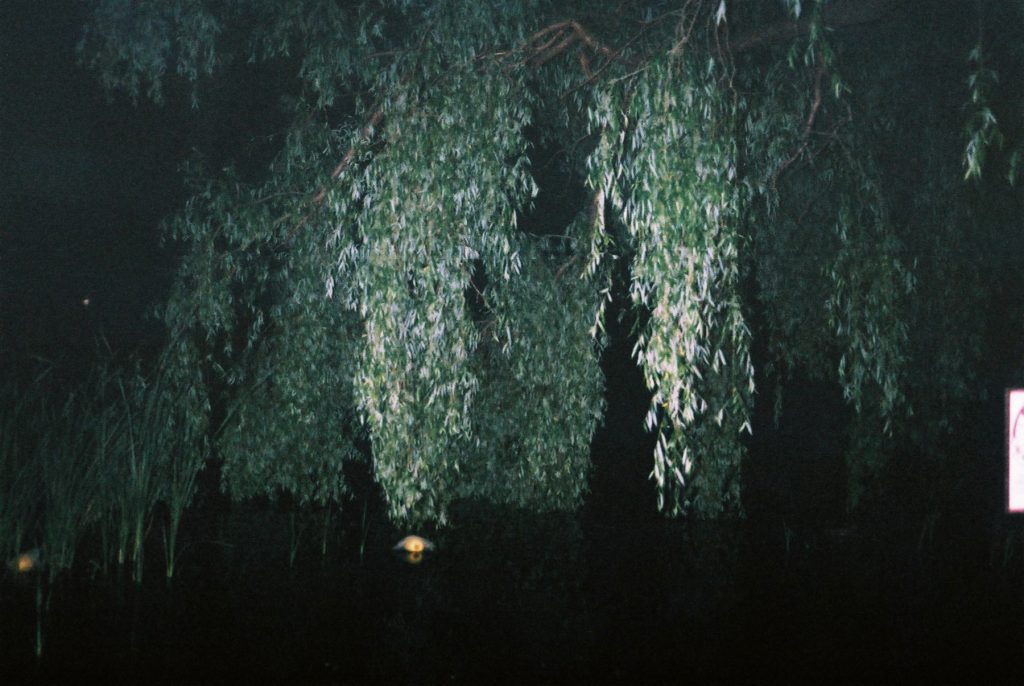
When I was in college, I lived in a town called Tokorozawa in Saitama Prefecture. My apartment was old. The rent was a little over 30,000 yen. It was a little far from the university, but since I had no money, I decided to stay there. I had to repeat 6 months of university so I lived in that apartment for five years. I still have a lot of attachment to Tokorozawa.
Just outside Tokorozawa Station, there was a shopping street called Purope Street. At the end of the street, there was a four-story Book-Off shop, and I was always there. It takes about 30 minutes to get from Tokorozawa to Takadanobaba. It is not a very long commute all things considered, but it didn’t feel that way at the time. I couldn’t get up at the time of my first period class. I woke up around noon, and when I was sure that I had missed the test and failed the credit, I went into a bookstore on Purope Street to escape from reality: I browsed CDs for 280 yen, DVDs for 980 yen, manga and books for 100 yen. When I got paid for my part-time job, I grabbed a 10,000 yen bill and bought as many books as I could. 100 or so paperbacks were heavier than I had imagined, and I had to carry them home in a double indigo plastic bag. The handles of the bags cut into my arms, and my fingers lost circulation and became cold. I repeated this every month. When I was in college, my home was the Book-Off in Tokorozawa Station.
I was born and raised in a place called Hashima City in Gifu Prefecture. Saitama and Gifu prefectures are very similar. There is no ocean and they are surrounded by mountains. There are beautiful rivers flowing throughout the town. Even though it’s in the countryside, you can go to big cities by train. Tokorozawa may seem a little too urban, but Honjo City, for example, is really similar to Hashima Island, and when I do a Google image search for “Honjo City, Saitama Prefecture,” I am struck with intense nostalgia (not only for Honjo City, but I sometimes do an image search for the names of various towns in Saitama Prefecture and imagine myself living there). It’s a strange habit. Of course, I have never lived there, but as I stare at the scenery, my memory of it comes back to me vividly, as if I had lived there. This is often the case. In a space that is similar to my hometown, but is not my hometown, and that I do not know at all, I feel a much deeper nostalgia than in my hometown.
A few years later, I was in a town called Takarazuka for work. It was my first year in the workforce. I liked Takarazuka. Takarazuka was also a town surrounded by mountains. I slept in a monthly apartment provided by the company. The monthly apartment was located in the mountains, and in the morning, the whole area was covered with fallen leaves. The office was about a 30-minute walk away, and every morning I walked through the fallen leaves on my way to work.
My work continued until midnight every day, and it was hard work, but I loved walking around Takarazuka. I often walked along the riverbank at night by myself. I would walk alone with a can of beer and watch the lights of the hotel reflected in the water. It was summer. From inside the hotel, I could hear the laughter of families. In my tired mind, dulled by work and alcohol, I would remember having gone on a family vacation when I was a kid. It wasn’t true. There is no such fact.
When I was in elementary school, I had a friend named Kondo-kun. His house was filled with manga. I often read manga at his house. While I was reading manga, Kondo-kun was playing games. We didn’t talk to each other. We were not very good at talking. We didn’t like to talk much. Whenever Kondo-kun said something, he would just quote lines from anime, manga, or games. Sometimes it was not even dialogue. In fact, I think that was the case more often than not. Kondo’s words were often onomatopoeia or sound effects. When we spoke, we spoke with onomatopoeia and sound effects. So I didn’t know much about Kondo-kun, and I don’t think Kondo-kun knew much about me. But we were friends.
Fiction turns a familiar world into the unfamiliar, and punctures a hole in the flat, everyday life we want to escape.
Kuchisake-onna (The Slit-Mouthed Woman urban legend) originated in Gifu. I found out about it from a Jigoku Sensei Nūbē (a manga) that I read at Kondo’s house. I think it was in Nube. It could be a lie, and there is a great possibility that it is mixed in with other knowledge that I read in other books. However, there is no doubt that the slit-mouthed woman appeared in Nube. I remember it, I remember that day. Of course, there is a great possibility that this is not true. I remember the day, the time, the place, and what I think I remember.
In the evening, chimes ring out all over the town. I don’t know if it is the same in every municipality. In Hashima City, Gifu Prefecture, where I was born and raised, when the sun was about to set, a chime sounded from the speaker in the city hall, and then the children’s song “Yuyake Koyake” was played. When the children heard this music, they stopped playing and went home.
I’ve never seen a slit-mouthed woman. But that day, the horrible face of a slit-mouthed woman I had never seen before stuck in my head, and I couldn’t shake it off. It was a five-minute walk from Kondo-kun’s house to my house, and if I crossed the big road, passed through the park, and walked straight through the residential area, I should have been able to get home. It was an unremarkable way home. There was little danger even for a child alone. In fact, I had walked back and forth that way many times. That road was my everyday life. But that day was different. The “Slit-Mouthed Woman” was in Gifu. That single piece of information changed my familiar daily life into something completely different from what it had been before. The thought that the Slit-Mouthed Woman might be there turned my familiar route home into a strange space. I think that was the first time I learned, as a personal fact, that a story can change reality.
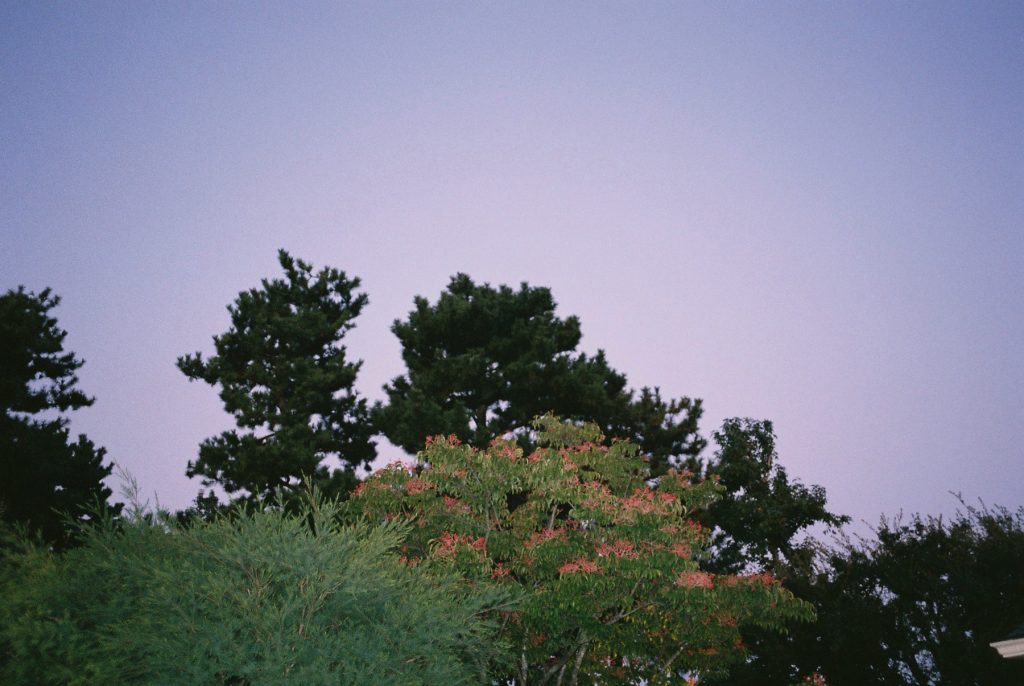
Night is coming.
It’s our time.
But it’s not forever.
I learned this in the winter when I was 11 years old.
By walking, I created many “us” within me. Each time we walked, there were more of us. We walked. Even when I was alone, I was not alone.
We walked.
We were walking.
We walked through the suburbs.
We walked through cities.
We walked through the countryside.
We walked by day.
We walked by night.
With sleepless eyes, we walked in the misty morning light.
We walked along riverbanks.
We walked in the mountains, in the woods, in the seaside towns.
We walked with our mothers.
We walked with my father.
We walked with my older sister, we walked with my younger sister.
We walked with a friend.
We walked with my lover.
We walked together.
As if by magic, all the scenery folds in on itself and flows from front to back. What is really important can never be written.
So we tell stories.
We cast a spell on ourselves.
Of course, the magic is not eternal.
Eventually, the spell will be broken.
We knew, on the first night of the 21st century, that being a child would end one day.
We knew. There was nothing beyond Sati.
We knew. There was nothing but a paved road, nothing but flat darkness, nothing but boredom.
We were looking at it. We were looking at it all the time. As we looked at it, we couldn’t figure out how to feel. We were at a loss. Meanwhile, the sun had risen. We headed back the same way we had come. The world at midnight was ours alone. That’s how I felt.
Eventually, as the sun rose, we were ripped away from the world.
